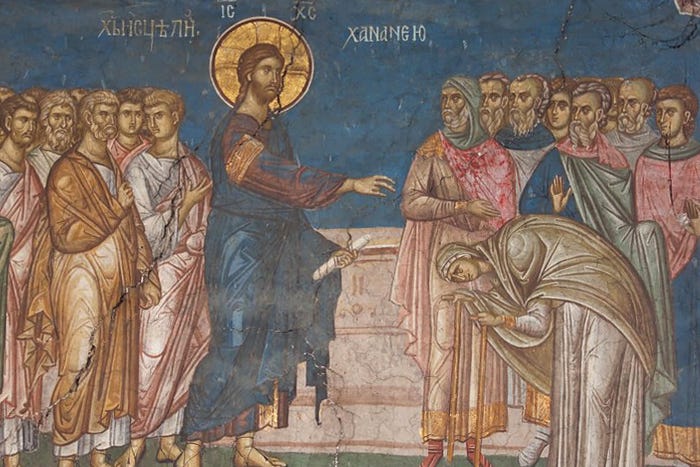Seen, Healed, and Named
(Free Version): Eleventh Sunday After Pentecost- Jeremiah 1:4-10; Psalm 71:1-6; Hebrews 12:18-29; Luke 13:10-17
Find this week’s readings here. This week, in our “Deep Dive,” we look at Dietrich Bonhoeffer on praying the Psalms, George MacDonald on the Hebrews reading; and some helpful cautions from AJ Levine on how Christians often import unhelpful stereotypes onto the Sabbath healings.
Some have asked if there is a way to subscribe to the “Deep Dive” monthly ins…




